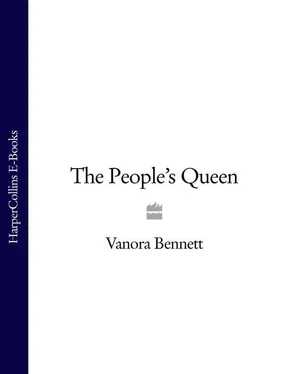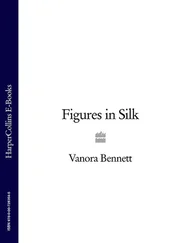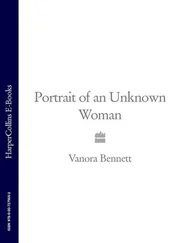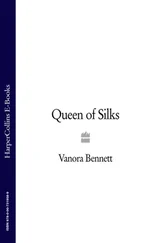The real point of this week’s festivities, as far as Alice is concerned, is to make sure she can continue to enjoy the power that feeds and protects all the wealth she’s still building up – even after Edward dies.
For Alice has begun to understand that the enchanted dream she’s been living in until now – the best part of a decade as the indulged darling of a dear old man who, himself, has been on the throne for nearly half a century, and is loved, everywhere, as England’s greatest king – must soon come to an end. No one else seems to have noticed or to be planning their next move, although when Edward does pass on the end of his reign will surely affect them all. The gentry grumble about paying taxes to fund his war in France, true. But they carry on buying expensive clothes and jewels, far beyond their means, and raiding each other’s manor houses when they think they can get away with stealing a few fields, just as the courtiers carry on dancing and jousting and prancing off to the war at vast expense and raiding each other’s castles, as if they all thought they could somehow continue for ever in the golden sunset years of Edward’s reign, in more or less peace, and more or less prosperity, stuffing their faces with larks’ tongues and honeyed peacock breasts, and watching the ice swans melt at an unending succession of banquet tables.
But Alice has heard Edward mumbling in the mornings, unable to shake off the night’s dreams; sometimes calling her ‘Philippa’ after his wife, or ‘Isabella’ after his favourite, headstrong, high-and-mighty fool of a daughter. He’s still most of the time, at least in front of others, the sparkling, charismatic, dynamic man he always was; but, in his unguarded moments, alone with her, she also sees the confused old man he’s becoming, or is about to become. She treats the creeping wound on his leg, which won’t heal, so she knows the extent of his physical decrepitude too, just as she knows the folly of his having recently restarted the war in France, years after he’s past his fighting prime, and of expecting to go on having the luck of the Devil that he enjoyed in his muscular youth, and winning.
So she’s formed a view. She needs to think about the future, beyond Edward. And she’s decided that the best way to protect herself against that cloudy tomorrow is to cultivate the friendship of one of Edward’s sons. Not to become a mistress again, obviously, for Alice doubts that a prince who could have any woman in the land would want his father’s cast-off, no longer young; she’s realistic enough never to have mistaken her rounded plumpness and dark curls and cheeky freckles for beauty. What Alice wants next is respect and recognition; a relationship that will maintain something of her influence and visibility, while leaving her the freedom of manoeuvre she needs to carry on buying up land and extending her possessions.
Ideally, she’d have preferred this respect and recognition to come from the son who is destined to be the next King of England. But the noble Prince Edward of England, heir to the throne, the former war hero, the ex-ruler of southern France, and as widely admired at court and among the peasants and soldiery as Alice finds him evil-tempered and vindictive, is not an ideal choice of patron for several reasons. One is his wife, Princess Joan, who’s made it clear to Alice for years now that she will never have time for a nouveau riche from nowhere. The other is that the Prince of England has been dying, agonisingly slowly, of some Castilian dropsy caught on campaign, for longer than Alice cares to remember. He’s still clinging to life for the moment; but Alice doubts he will make it to become King Edward IV. And there’s no point in hoping that, when the Prince does die, she’ll get anywhere with his little boy, Richard, a child in the nursery, guarded by his disagreeable mother, that bloated ex-beauty of a princess with the pursed lips and nostrils that flare and dent white whenever she sees Alice.
That leaves the other royal son: John of Gaunt, the Duke of Lancaster, the man out there, sweating as he dances. Son number three originally, but since the death of his brother Lionel he’s been son number two; and with every chance that his eldest brother Prince Edward hasn’t long left in this vale of tears either, he’s all too likely, all too soon, to be the King’s eldest surviving son.
It’s a matter of whispered conjecture whether Duke John might, in that eventuality, try and get the throne for himself, rather than protect it for his little nephew, his brother’s son. Some people point to Duke John’s innate nobility, the courteous conservatism in every thought and gesture, and say he wouldn’t. But most people think he would.
There’s no doubt that Duke John’s a good-looking man, in body. There’s a grace to the way he bows his long lean frame, a beauty in the line of eye and cheekbone, and his voice is deep and authoritative. He has a natural dignity of behaviour. But Alice isn’t so sure this beauty extends to his soul. Nor are most other people. After all, Duke John has already claimed one throne, after taking as his second wife a disinherited princess of Castile. He likes to call himself ‘We, the King of Castile’ in his correspondence, and is always threatening to go and conquer Castile and win back his wife’s country (at the expense of the English taxpayer). The suspicious way most people see it is this: would a prince who’s so greedy for a crown that he’ll go all that way in pursuit of one turn up his nose at the much more glorious Crown of England, if he got a chance to grab it? Of course he wouldn’t.
The very fact that people are so ready to believe the worst of the Duke of Lancaster, with no proof one way or the other, shows what an unpopular man this John of Gaunt is. Not without reason, Alice knows. He’s the scratchy kind. He rubs people up the wrong way, even when he doesn’t mean to; and all too often he does mean to. Even among the aristocrats of this court, he’s considered unusually arrogant; considering the competition, Alice thinks wryly, that’s quite an achievement. Certainly he’s not loved among his social inferiors. He hates his father being so dependent on the merchants of London for money. To the merchants’ pained displeasure, he talks too much about the nobility of the nobility and the crawling servility of the lesser orders. And merchants and noblemen alike now have an excuse to dislike and despise Duke John because, in the absence of his sick brother, he’s been in charge of the English armies in France in this disastrous past year, so he’s the one to carry the can for losing pretty much all of English Gascony and costing the country a mint of money. In fact, it’s a good job the Duke’s the richest man in England, with territories from the Scottish border to the South, because he has precious few friends anywhere, and if it weren’t for his money, he’d have none at all.
John of Gaunt needs more than money. He needs to learn to be popular – especially if, as Alice thinks likely, he’s one day going to have a try for the English crown. Alice’s nose for money tells her that any king nowadays will need finance from outside his own estates. Rents aren’t what they used to be, now that there are only half the number of Englishmen to farm the land and pay the landlords. The nobility is poorer. So the most important lesson the Duke needs to learn is how to get on with the London merchants, who are becoming as powerful as the merchant princes of Italy were right after the Mortality (until Edward bankrupted all of them with an earlier lot of colossal war debts). The top few merchants are richer than all the noblemen of England put together. Duke John’s got to stop treating them like dirty sheep-shearing tinkerish no-good thieves. He’s got to respect them as the financiers of today’s England. And it’s Alice’s private belief that there’s only one person who can teach him all that – who understands both court and City, and can explain it right. That person is her.
Читать дальше












